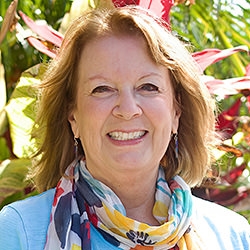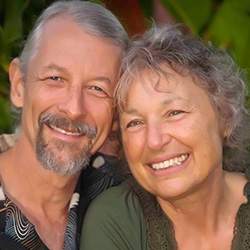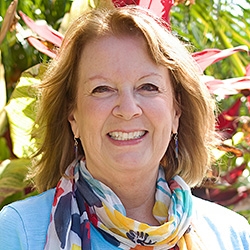
Search Results: denial
-
-
Mary Mackenzie shares how Marshall Rosenberg's Four D's of Disconnection live in her. Join Mary and learn how you can reframe the 4 D's to enhance connection.
-
Mismanaged emotional pain can compound and hurt ourselves and others. Four ways we can mismanage pain are: denial, blame, depression, and escape/numbing. This can result in hatred, resentment, discrimination, revenge, anger, and more problems. The fifth way we can deal with pain is to confront the pain acknowledging it and dealing with our unmet needs. This is a more direct path. Read on for more ideas for how to handle the pain.
-
When avoidance coping or positive thinking sidesteps challenges, internal and external injustice and unrest also rises as we sidestep our values and integrity. It leaves us in sadness and distress. What's unacknowledged impacts ourselves and others undesirably. To live nonviolently we need to be in touch with what's real. With resonance we can more likely be with what's true, and trust our resilience and inner alignment.
-
Here are some very basic forms and distinctions of NVC. It covers the 4 D's, OFNR, some NVC distinctions, tips, quotes from Marshall Rosenberg, and "feelings and needs" lists, and more. As with any art, these rudiments necessarily must be learned, practiced, understood, embodied and then let go of so as not to become rote and block creativity.
-
For us to have a more peaceful world and relationships, growing our skills to engage interdependently is key. An interdependence-oriented person may choose to attend to both inner factors and outer factors that affect their own and others' experiences. Unfortunately, this is likely to be misunderstood by independence-oriented people as enmeshment -- and this is where conflict emerges. Read on for more.
-
When you say yes, check if you are saying it out of submission. Similarly, when you say no, are you saying it genuinely or out of rebellion? Marshall Rosenberg calls this a loss or erosion of goodwill which can destroy or undermine relationships. In this video, Rachelle Lamb shares how submission and rebellion in communication can diminish your power.
-
Learn to recognize four forms of thinking and speaking that are likely to lead to disconnection.
-
This exercise is most often the first activity in a beginning level workshop after the usual logistics/history/check-in. Penny Wassman experiences it as an opportunity for people to build connection with one another.
-
Why is it so difficult to change our patterns even when we want to, even when we experience shame or despair about them? Arnina Kashtan offers some of the common pitfalls and concrete steps to overcome them in the future.
-
Trainer Tip: Take a moment to consider feelings, our conditioning about expressing or even feeling emotion, and the value of re-evaluating our relationship to feelings.
-
In treating everyone the same, we perpetuate inequities. If we want NVC consciousness to spread globally, it's crucial to acknowledge how various demographics are have varying capacities, and are differentially perceived, treated and impacted. Modifying our NVC teachings can increase equity and reduce the frequent judgement, disbelief, denial, insistence, non-resonance and re-marginalization that so many experience in NVC circles.
-
When we have privilege, we can have access to resources resulting from legal or social norms related to membership in a group -- independent of any (in)action, awareness of the disparity, the potential benefits to us, or the costs to others. Unhelpful ways of engaging with privilege are: denial/invisibility, guilt/shame, defensiveness, and entitlement. Helpful ways of engaging are: owning privilege, learning about privilege, opening to feedback, and stewarding privilege for benefit of all. To be helpful we need to engage with necessary (rather than unnecessary) discomfort.













